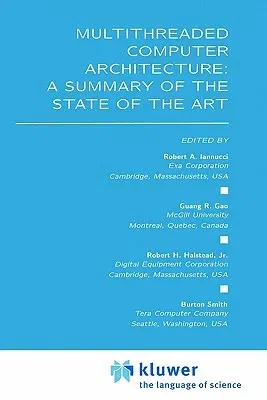Multithreaded Computer Architecture: A Summary of the State of the Art (1994)Hardcover - 1994, 30 September 1994

Qty
1
Turbo
Ships in 2 - 3 days
In Stock
Free Delivery
Cash on Delivery
15 Days
Free Returns
Secure Checkout

Part of Series
The Springer International Engineering and Computer Science
Part of Series
Kluwer International Series in Engineering & Computer Science
Part of Series
International Series in Engineering and Computer Science
Part of Series
Huebner International Series on Risk, Insurance, and Economic Security
Part of Series
Kluwer International Series in Engineering and Computer Scie
Part of Series
Springer International Series in Engineering and Computer Sc
Print Length
400 pages
Language
English
Publisher
Springer
Date Published
30 Sep 1994
ISBN-10
0792394771
ISBN-13
9780792394778
Description
Product Details
Book Edition:
1994
Book Format:
Hardcover
Country of Origin:
US
Date Published:
30 September 1994
Dimensions:
23.39 x
15.6 x
2.39 cm
ISBN-10:
0792394771
ISBN-13:
9780792394778
Language:
English
Location:
New York, NY
Pages:
400
Publisher:
Series:
The Springer International Engineering and Computer ScienceKluwer International Series in Engineering & Computer ScienceInternational Series in Engineering and Computer ScienceHuebner International Series on Risk, Insurance, and Economic SecurityKluwer International Series in Engineering and Computer ScieSpringer International Series in Engineering and Computer Sc
Weight:
762.03 gm